What is Cannabigerolic Acid (CBGA)?
Summarize
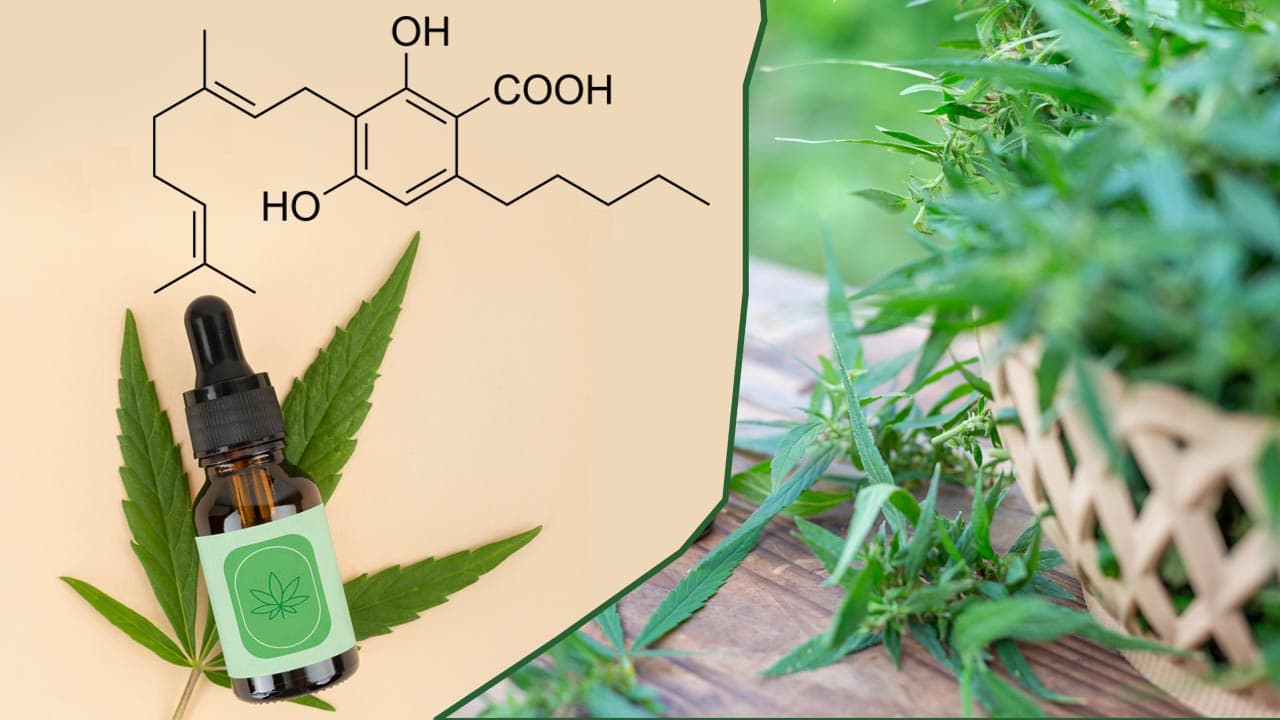
There are so many acronyms in the cannabis industry, like THC, CBD, CBG and many more. This reflects the fact that the cannabis plant (hemp) produces a large number of plant cannabinoids and chemicals.
The major cannabinoids are THC and CBD, but there are precursor constituents like CBGA that enable the formation of these and other minor cannabinoids as the hemp plant grows. Cannabigerolic acid (CBGA) refers to the earliest cannabinoid precursor molecules found in cannabis and hemp plants and is undergoing increasing clinical research concerning its possible health benefits.
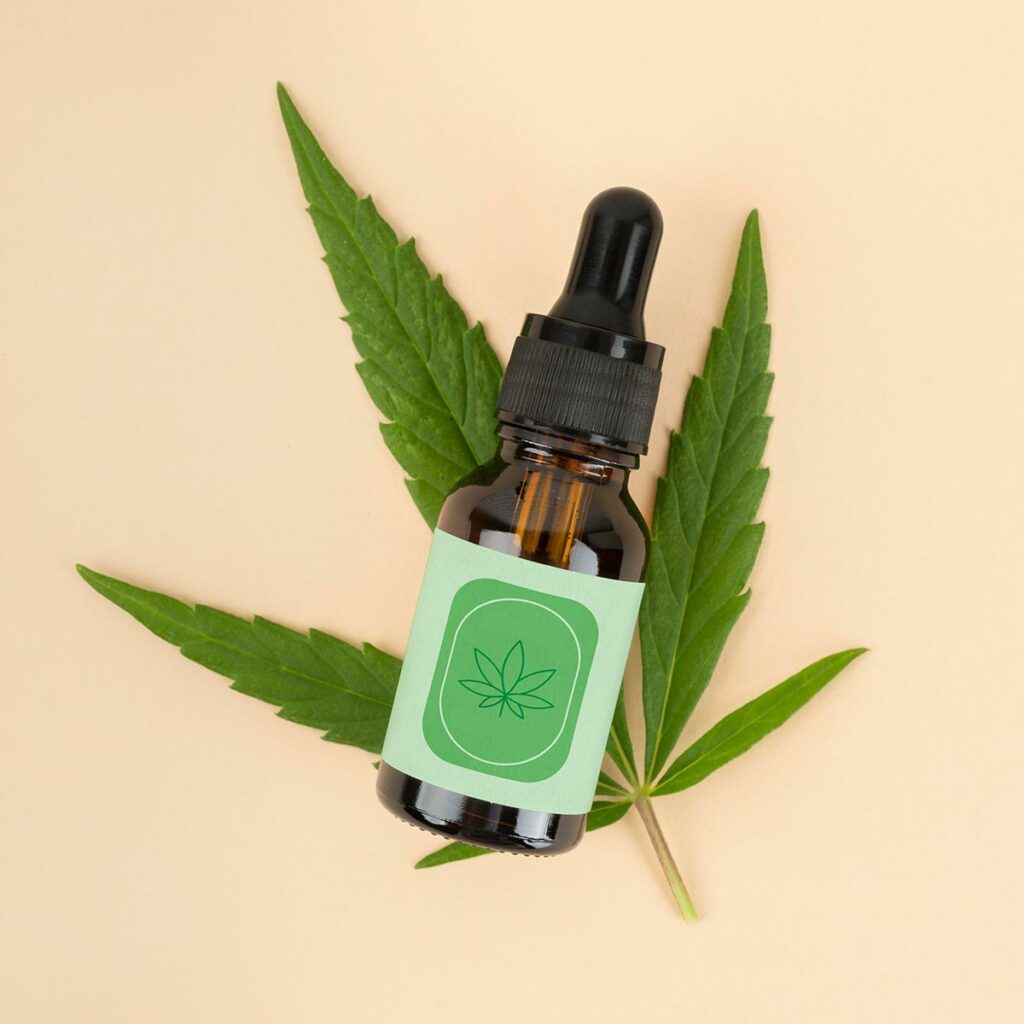
TL;DR (Too Long; Didn’t Read):
CBGA is a precursor cannabinoid found in the cannabis and hemp plants that is transformed mostly into the major cannabinoids of THCA and CBDA and in lesser quantities into CBCA and CBG. The enzymes present during plant growth determine which cannabinoids are formed. Not much research concerning CBGA has been conducted yet, but the research to date indicates it has great potential to provide various medical benefits. CBGA products are scarce, but CBG products are easy to find online.
Table of Contents
What is CBGA?
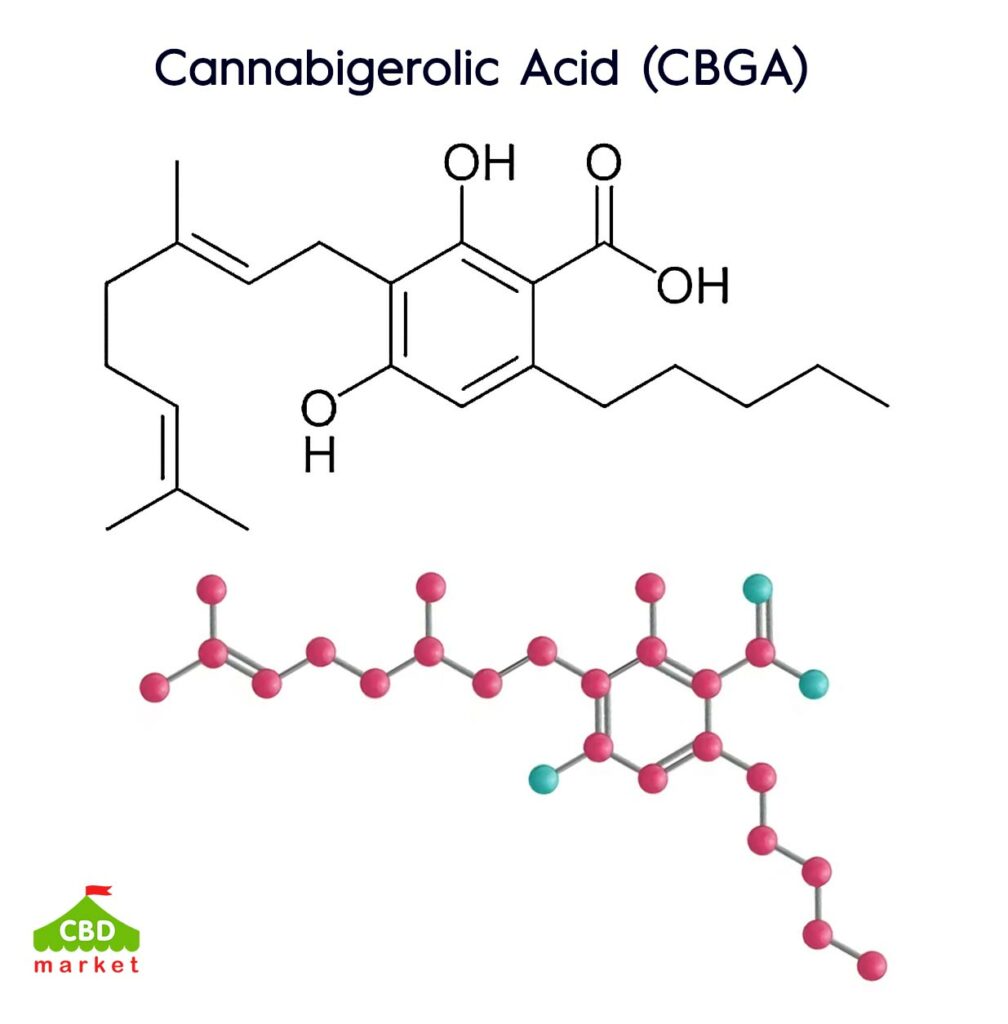
Often referred to as the “mother cannabinoid,” cannabigerolic acid (CBGA) is a precursor phytocannabinoid for a variety of major and minor cannabinoids. The CBGA cannabinoid is formed from the natural modification of the biosynthetic olivetolic acid as the Cannabis sativa and hemp plants grow. Hemp is the legal cannabis plant version specifically grown to contain less than 0.3 percent THC. As the plant continues to grow, enzymes present in the plant synthesize CBGA mostly to THCA (delta-9 tetrahydrocannabinolic acid), CBDA (cannabidiolic acid) and CBCA (cannabichromenic acid).
With exposure to heat and light, delta-9 THCA becomes delta-9 THC, CBDA becomes CBD and CBCA become CBC. THC and CBD are major cannabinoids, while CBC is the most abundant minor cannabinoid. CBGA is also an acidic precursor to the formation of CBG. The type of enzymes present during plant growth determines the cannabinoids formed.
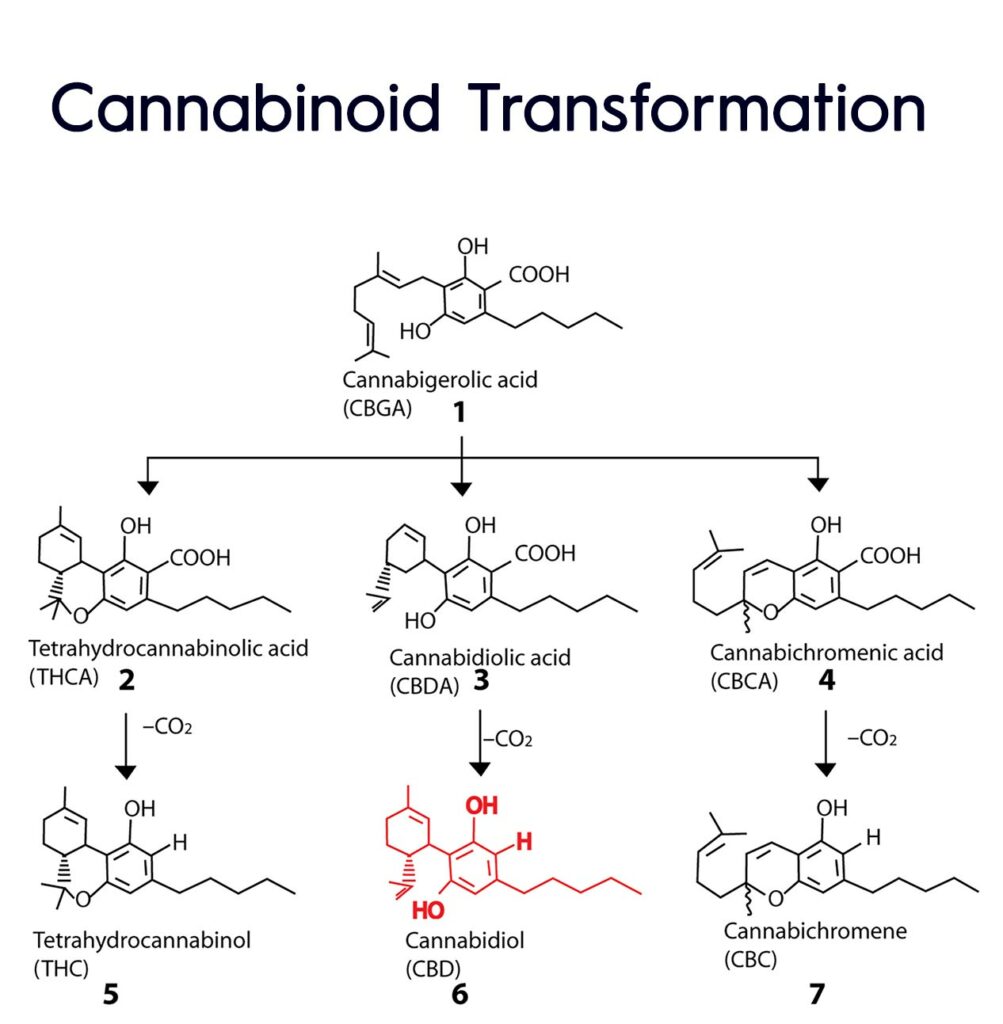
CBGA plays a role in natural leaf necrosis. This is nature’s way of killing weak leaves and allowing the plant to direct its growth energy toward the flower.
Since CBGA is a precursor for the major cannabinoids THC and CBD, it is only found in very small amounts in the mature cannabis plant. The CBGA is mostly converted into THC and CBD, leaving very little CBGA.
How Does CBGA Work?
CBGA acts on the endocannabinoid receptors. It is known to be non-psychoactive. It is also believed to be an antagonist to the CB1 receptors and makes the body more accepting of other cannabinoids. There is ongoing research to determine the specific biologic action of CBGA on the body, including its effects on CB2 receptors. Some research has found that CBGA has a low affinity for both CB1 and CB2 receptors. As you can tell, there is still a lot to learn about CBGA.
How Does CBGA Make You Feel?
CBGA may produce feelings of relaxation but does not produce a mind-altering high. You may not feel anything since there are ongoing researches to determine the action of CBGA on the body. Overall, you will need to take CBGA oil for some time to feel its effect.
Does CBGA Get You High?
CBGA is not a nonintoxicating cannabinoid, meaning it won’t make you high.
Research has shown that CBGA does not have psychoactive effects, so it does not produce mind-altering intoxication or euphoria. If you eat some product that has THC, you can experience some degree of high.
Possible Medical Benefits of CBGA
Research concerning CBGA benefits is scarce, but cannabinoid is experiencing increasing numbers of clinical studies.
- There is interest in further investigating CBGA as an anticonvulsant, but much more research is needed.
- Different studies investigate the relationship between CBGA and cardiovascular diseases. An in vitro study found CBGA reduced the enzyme aldose reductase, contributing to heart disease. If researchers determine that CBGA is an antioxidant, then the cannabinoid may benefit people’s health in many other ways.
- There is even a study that found the Cannabis sativa flower compounds may stop colon polyps from growing.
- Yet another study found that CBGA and other cannabinoids have an antioxidant impact similar to that of vitamin E.
- The research made by the Oregon State University shows that CBGA (cannabigerolic acid) and CBDA (cannabidiolic acid) in hemp have the ability to bind together with the SARS-CoV-2 spike protein and block a critical step in the process the virus uses to infect people. This promising research regarding hemp and COVID-19 may be a significant contributor to the fight against Coronavirus.
The medical research concerning CBGA is still in the nascent stage, and researchers are not making any claims as to the health benefits of CBGA. However, the research to date is very promising and is providing impetus for continued clinical studies.
What’s the Difference Between CBG and CBGA?
When considering CBGA vs. CBG, remember that CBGA is an acidic precursor to all cannabinoids.
CBGA is an acidic form of CBG, meaning CBG and CBGA are not the same cannabinoids. The conversion of CBGA into CBG takes place when CBGA is exposed to heat and UV light.
If you were to smoke raw hemp, CBGA could convert to CBG due to heat exposure. After the conversion process, CBG becomes the non-acidic form of CBGA.
Researchers have already learned that CBG binds to the CB1 and CB2 receptors in the endocannabinoid system. It shows weak partial agonist activity at both receptors. CBG may have an antibiotic effect and analgesic properties. There are numerous CBG products readily available. For example, on the CBD.market, you will find:
- CBGA and CBG oils
- CBG capsules
- CBG gummies
- CBD isolates
- CBG creams.
The CBG products are formulated to help promote sleep, general well-being, and increased energy.
Where Can You Find CBGA?
When people want to know how to get CBGA or CBG, the best sources are found online. CBG products are readily available through online sources like cbd.market. At our store, you will be able to buy Myriam’s Hope Hemp CBGa Oil.
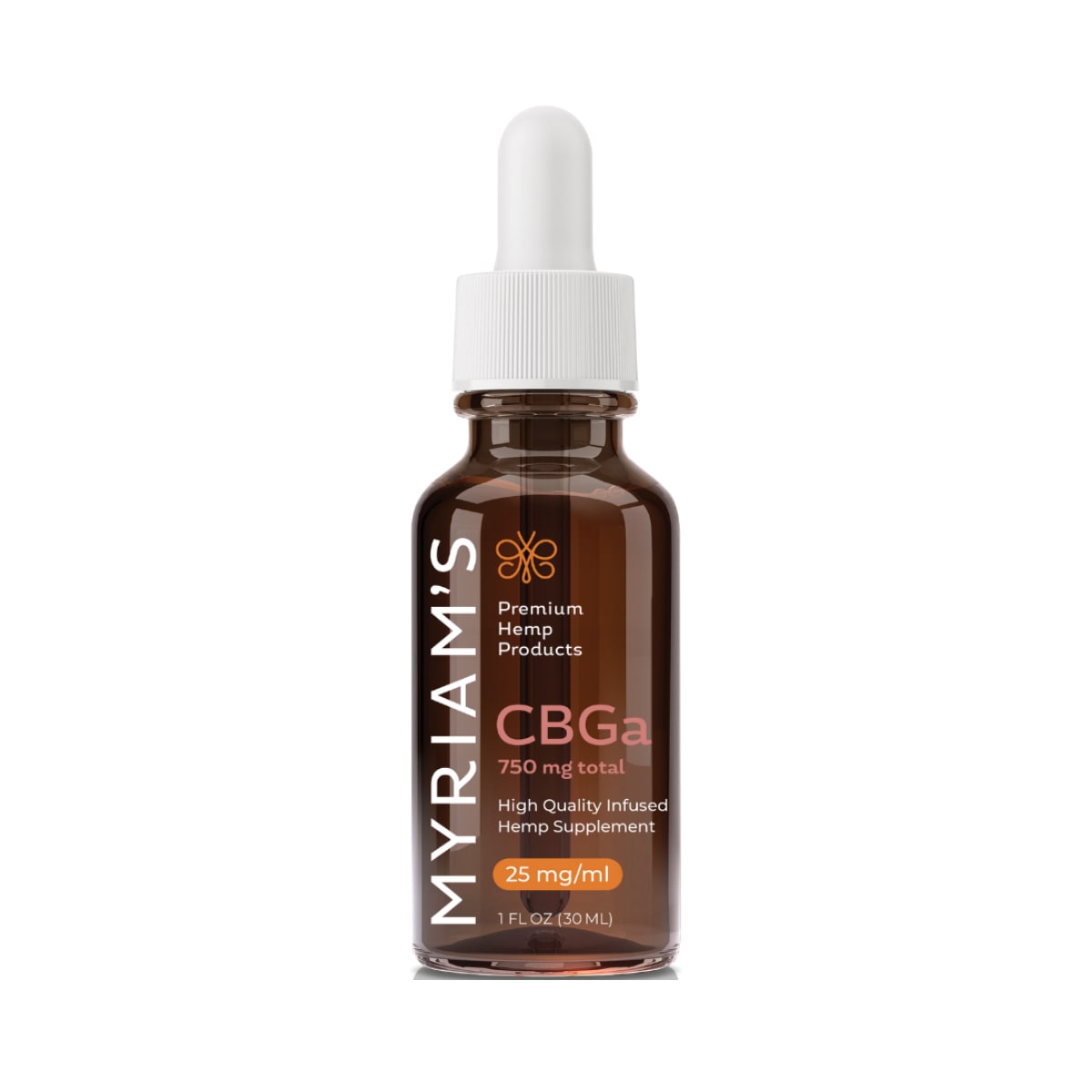
Product Details
| Total CBDa | 750 mg |
| Potency (mg/ml) | 25 mg/ml CBDA |
| Available Flavors | Olive Oil, Vanilla, Sunrise Orange |
| Ingredients | Organic Cold Pressed Olive Oil, Organic Hemp Extract |
This CBDa oil by Myriam’s Hope Hemp contains 750 mg+ CBDa per fluid ounce and other beneficial and therapeutic phytocannabinoids, terpenes, and flavonoids. Additional features include:
- Made with all natural ingredients
- Full Spectrum
- Made in the USA
- Sugar and wheat free
- Vegan Friendly
- Less than 03% THC
Buying online offers privacy, the ability to shop for different brands, compare costs and read customer reviews.
Summary
Much of this may sound a bit confusing because more research is needed on the specific action of cannabinoids in cannabis and hemp plants and in the human body. Both CBGA and CBG can play a role in the entourage effect. There are CBGA products for sale, like CBGA oil, but they are in limited supply now. This is due to the fact that CBGA is a precursor, and the plant must be harvested while very young in order to extract this cannabinoid. Mature plants have CBG. Hemp farmers are striving to develop plant strains that have more CBGA and CBG.
Sources
- https://www.sciencedirect.com/topics/chemistry/cannabigerolic-acid
- https://www.ncbi.nlm.nih.gov/pmc/articles/PMC8725448/
- https://pubmed.ncbi.nlm.nih.gov/29427593/
- https://pubmed.ncbi.nlm.nih.gov/29992185/
- https://pubmed.ncbi.nlm.nih.gov/33964342/
- https://www.sciencedirect.com/topics/neuroscience/cannabigerol
- https://www.sciencedirect.com/topics/chemistry/cannabigerol
Share this post


0